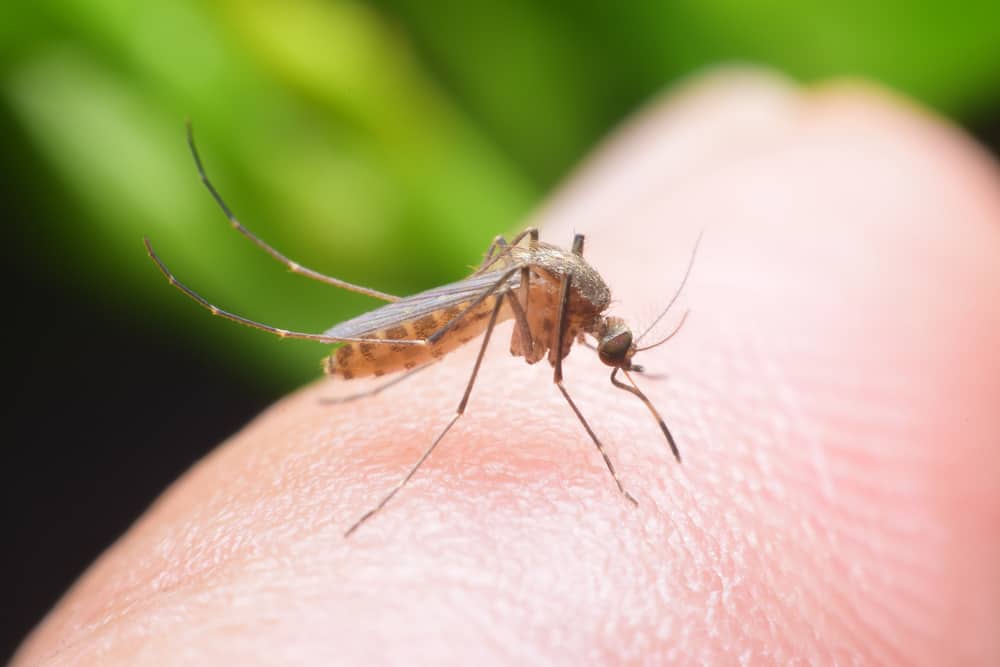Contents:
- Medical Video: Researchers capture 'key' to deadly malaria infection
- Malaria should not be underestimated
- How to prevent malaria that has proven effective
- How do you prevent malaria if you have to travel to a malaria-prone location?
- Immediately go to the doctor, if ...
Medical Video: Researchers capture 'key' to deadly malaria infection
Cases of malaria in Indonesia have continued to decline from 2011 to 2015, according to the Health Ministry Infodatin report. Even so, some eastern regions of Indonesia are still at high risk of malaria outbreaks. Data from UNICEF also estimates that more than 40 percent of the world's population is at risk of developing malaria. Only one mosquito bite is needed Anopheles to contract malaria. Unfortunately, malaria vaccines are not yet available to the public. Find out how to prevent malaria in this article.
Malaria should not be underestimated
MosquitoAnopheles the female carries the plasmodium parasite which will flow in the bloodstream and eventually land on the liver after you have been bitten by it. The parasite then multiplies and returns to circulate in the bloodstream to attack your red blood cells.
After a few days, you will begin to experience symptoms of malaria such as high fever for 2-3 days, chills, and muscle aches. If you have experienced these symptoms, treatment needs to be done within four weeks. Malaria is a deadly disease. This disease can quickly cause loss of consciousness, difficulty breathing, convulsions, shock, to more serious problems, such as failure of the heart, lungs, kidneys, or brain.
Although the number of malaria cases nationwide has been reported to have declined, some eastern regions of Indonesia such as Papua, NTT, Maluku, Sulawesi, also Bangka Belitung, are still endemic to malaria. This fact does not mean you do not need to be aware of malaria if you do not live in these areas. Traveling to an endemic area of malaria even though it can temporarily increase your risk of the disease. Especially pregnant women, babies, young children, and elderly people who have a weak immune system.
So, it remains important for every Indonesian to prevent malaria. It's always better to prevent than cure, right?
How to prevent malaria that has proven effective
There are a number of things you can do to prevent malaria, wherever and whenever you are. The most important and the first thing you have to do is protect yourself from mosquito bites, with:
- Wear protective clothing such as long pants and long shirts during activities, especially at dawn or late afternoon. The most vulnerable malaria mosquitoes circulate at this time.
- Install insect repellent indoors, or routinely spray insect repellent in the morning and evening.
- Apply mosquito repellent containing DEET ordiethyltoluamidewhen you feel there are lots of mosquitoes around you.
- Use mosquito nets that are sprayed with insecticides, such as permethrin or deltamethrin, to cover your bed.
- Avoid the habit of hanging clothes in a house that can be a place for mosquitoes to hide.
- Wear sleepwear or blankets that can cover the skin of the body.
- Take precautionary measures 3M:
- Drain and clean the bathtub.
- Close or get rid of puddles that have the potential to become a nest of mosquito larvae.
- Sow abate powder to eradicate mosquito larvae.
- Routinely do fogging once a month. Ask the authorities (RT / RW / Kelurahan) to conduct mass fogging in your local environment.
If you are among those at high risk of contracting malaria (pregnant women, young children, the elderly), avoid traveling to malaria-prone areas as much as possible. To find out which countries are at high risk of malaria other than Indonesia, find out by clicking the information page from this CDC or at the following link https://bit.ly/2qHA3eP.
How do you prevent malaria if you have to travel to a malaria-prone location?
The various ways to prevent malaria as mentioned above still apply wherever and whenever you are. But before booking airplane tickets and other accommodations for as long as you are there, there is one other thing you need to do. Be sure to consult a doctor first at your home location. Tell your doctor that you will be traveling to an area prone to malaria and intend to stay there temporarily.
Doctors can prescribe prophylactic drugs (low dose antibiotics) for you to drink before leaving. Also tell your doctor about where you are going. Doctors usually prescribe malaria prevention drugs depending on the geographic area of your destination and its environment, while also considering your current age and health conditions - including whether you are pregnant, and have certain drug allergies.
Because prophylactic drugs are classified as antibiotics, make sure you take the medication regularly according to the directions of the dosage within the prescribed time period. For example, a doctor requires you to take medicine once a week from now until you have been active there for 3 weeks, spending up to that deadline. It is best to take medication at the same day and time every week.
After returning to your homeland, you still have to go to the doctor to continue taking malaria medicine, at least until 1-4 weeks after returning. The goal is to make sure there are no parasites left in your body.
Immediately go to the doctor, if ...
You are advised to immediately seek medical attention if you have a high fever and shivering after returning from an endemic area of malaria, even though you regularly take malaria prevention medication while there.
Infection caused by malaria mosquitoes can develop so quickly that your condition can worsen in a short time. So, it is important to get treatment as early as possible.












